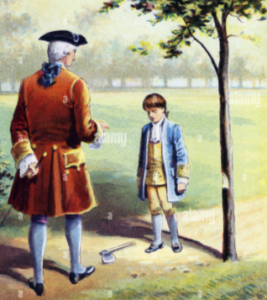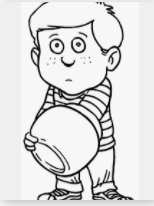Telling the Truth
As a young boy, the thing I remember my parents emphasizing the most was to always tell the truth. We all heard the story about George Washington and the cherry tree
Sometimes the truth hurt. Sometimes the facts did not add up as I hoped. Nonetheless, I was taught to accept the facts, then move on. Sometimes that meant accepting what I had done was wrong and working to not let it happen again. Sometimes it meant working to get better. Almost always, talking about the situation was beneficial.

Our History
Today I read about the debate over what parts of history we should teach our children in school. There are stories of cruelty, oppression, thoughtlessness, lack of caring and more. Should we share those stories with our children? Should we talk about things that make us uncomfortable?
The answers seem simple. Follow the lessons of my youth. Find the facts. Tell the truth.
As I struggle with those questions, it seems a good time to reflect. As the encourager of many dads, I wonder if I have been trying to lead in the right direction? So, I looked back at the Be There Dad lessons we have taught over the years and reassessed how they fit this challenge. These are some of the lessons we have sought to share. I wonder if they remain part of a good formula for addressing this controversy.
Be There Dad Lessons
In the very beginning, we told our dads, “We don’t grow because we know the answers, we grow because we struggle with the questions.” We encourage dads to ask, then find their own answers to the difficult questions.
My practice has been to share what I have called the parables of my life. True stories that helped me understand how to be present and engaged. Dads know that Professor Randy Pausch took a similar view when he instructed us how to teach our children. In The Last Lecture he wrote, “Don’t tell them how to live, just tell them the stories.” Dr. Pausch wanted us to share the facts.
Often we have re-visited the famous battle, when Goliath asked, “Why have you come to do battle?” David courageously responded with the truth about why he would risk his life to face the giant. His faith required him to be strong.
In these and many more examples, we have encouraged dads to tell the stories, reveal
We have spoken to dads about sharing their mistakes and shortcomings with their children. Such sharing may allow our children to reciprocate by sharing their own mistakes, failures and bad feelings with their dads; rather than tackling those issues by themselves and doing something unwise.
Continually we have spoken of the importance of family and sharing what we call “family folklore”- the stories of the past that make us family. Sometimes those stories are flattering and sometimes they are not. Regardless, they are the trail of where we have been and how we got here. Family can make us strong enough to endure whatever may challenge us in the future
As we shared our past, we have constantly looked to the future. Yogi told us, “If you don’t know where you are going, you will end up somewhere else.” And, always, “those who do not learn from history are bound to repeat it.”
Creating a Future
And so, we keep our eyes on the prize – to help our children create a future that is full of hope and love. A future where everyone can get along. A future where every child can fulfill their promise and make it to the finish line. A future where “nobody wins until we all do”.

Confidence in Our Children
To have these conversations and give our children the chance to make the world a better place, we must trust that they will listen and then use the knowledge in a positive way. I believe in our children. I believe in the way Harry Chapin described our youth as the ever-present, undying hope for change when he wrote:
… she is always seventeen
She has a dream that she will lend us and a love that we can borrow
There is so much joy inside her she will even share our sorrow
She’s our past, our present and our promise of tomorrow
Oh, truly she’s the only hope I’ve seen, and she is always seventeen.
The most important thing I have learned on my Be There Dad journey is that dads are more alike than they are different. Although dads have come to the present from different pasts, they have come to us sharing common dreams for their children’s futures…that they will be happy, healthy, self-sustaining and spiritual.
In an age appropriate manner, as Be There Dads, it seems to be the time to collect what we have learned and begin to tell our children the truth about our history. Now is the time to believe that as dads share it, the children will use that truth to better understand the present and to work together to create the future they deserve.
What did your dad teach you? My dad taught me to tell the truth.





